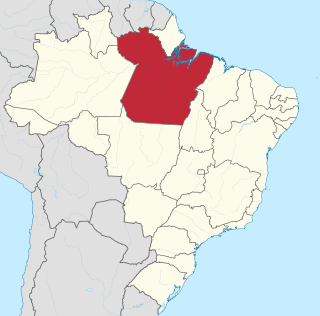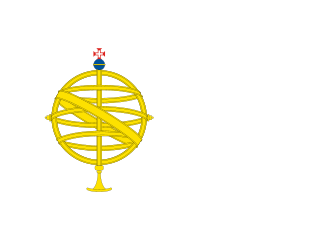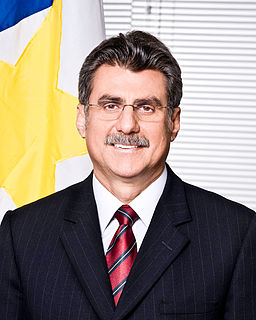| |||||||||||||||||||||||||||||||||||||||||||||||||||||||||||||
Mayors and councillors of all the 5,568 municipalities of Brazil | |||||||||||||||||||||||||||||||||||||||||||||||||||||||||||||
|---|---|---|---|---|---|---|---|---|---|---|---|---|---|---|---|---|---|---|---|---|---|---|---|---|---|---|---|---|---|---|---|---|---|---|---|---|---|---|---|---|---|---|---|---|---|---|---|---|---|---|---|---|---|---|---|---|---|---|---|---|---|
| |||||||||||||||||||||||||||||||||||||||||||||||||||||||||||||
The Brazilian municipal elections of 2012 took place on October 7 and on October 28 (for cities with more than 200,000 voters, where the second round is available). [1] Over 138 million voters chose mayors, deputy mayors and city councillors for the 5,568 municipalities of Brazil. [1] [2] These were the first elections in which the recently registered parties Partido Pátria Livre (PPL) and Partido Social Democrático (PSD) participated; they were both recognized by the Supreme Electoral Court (Tribunal Superior Eleitoral– TSE) in 2011. [3] Political parties whose candidates wished to run for the 2012 elections had to be registered at the TSE for at least one year before the election date, [1] while candidates also had to be affiliated to a party for the same period of time. [4] Conventions for the selection of candidates within the parties occurred between 10 and 30 June, while the registry of candidates and alliances with the Regional Electoral Courts (Tribunais Regionais Eleitorais– TREs) took place until July 5. [4] Electoral campaign was authorized from the moment a candidacy had been registered. The free electoral program (propaganda eleitoral gratuita) – two daily slots on free-to-air TV and radio for political advertising paid by the Electoral Justice fund – ran weekdays from 21 August until 4 October. [4] According to the current Brazilian electoral law, the two-round system – should the leading candidate receive less than 50% +1 of the votes – is only available for cities with more than 200,000 voters. [1] This includes all state capitals, with the exception of Boa Vista, Roraima and Palmas, Tocantins, plus 59 other municipalities. The free electoral program for the second round ran from 13 October until 26 October. [4]

The two-round system is a voting method used to elect a single winner, where the voter casts a single vote for their chosen candidate. However, if no candidate receives the required number of votes, then those candidates having less than a certain proportion of the votes, or all but the two candidates receiving the most votes, are eliminated, and a second round of voting is held.
In many countries, a mayor is the highest-ranking official in a municipal government such as that of a city or a town.
Deputy mayor is an elective or appointive office of the second-ranking official in many local governments.
Contents
Below is a list of the cities where the runoff took place (bold denote state capitals). These cities are home to 31 725 967 of the country's total constituency of 140 646 446 registered electors; that is, 22.56% of Brazilian voters went to the polling stations on October 28.
- Belém , Pará
- Belford Roxo, Rio de Janeiro
- Blumenau, Santa Catarina
- Campina Grande, Paraíba
- Campinas, São Paulo
- Campo Grande , Mato Grosso do Sul
- Cariacica, Espírito Santo
- Cascavel, Paraná
- Contagem, Minas Gerais
- Cuiabá , Mato Grosso
- Curitiba , Paraná
- Diadema, São Paulo
- Duque de Caxias, Rio de Janeiro
- Florianópolis , Santa Catarina
- Fortaleza , Ceará
- Franca, São Paulo
- Guarujá, São Paulo
- Guarulhos, São Paulo
- João Pessoa , Paraíba
- Joinville, Santa Catarina
- Juiz de Fora, Minas Gerais
- Jundiaí, São Paulo
- Londrina, Paraná
- Macapá , Amapá
- Manaus , Amazonas
- Maringá, Paraná
- Mauá, São Paulo
- Montes Claros, Minas Gerais
- Natal , Rio Grande do Norte
- Niterói, Rio de Janeiro
- Nova Iguaçu, Rio de Janeiro
- Pelotas, Rio Grande do Sul
- Petrópolis, Rio de Janeiro
- Ponta Grossa, Paraná
- Porto Velho , Rondônia
- Ribeirão Preto, São Paulo
- Santo André, São Paulo
- Rio Branco , Acre
- Salvador , Bahia
- São Gonçalo, Rio de Janeiro
- São Luís , Maranhão
- São Paulo , São Paulo
- Sorocaba, São Paulo
- Taubaté, São Paulo
- Teresina , Piauí
- Uberaba, Minas Gerais
- Vila Velha, Espírito Santo
- Vitória , Espírito Santo
- Vitória da Conquista, Bahia
- Volta Redonda, Rio de Janeiro

Belém, is a Brazilian city with 2,491,052 people residing in its Metropolitan Region. The capital city itself has 1,485.732 inhabitants. It is the capital and largest city of the state of Pará in the country's north. It is the gateway to the Amazon River with a busy port, airport, and bus/coach station. Belém lies approximately 100 km upriver from the Atlantic Ocean, on the Pará River, which is part of the greater Amazon River system, separated from the larger part of the Amazon delta by Ilha de Marajó. With an estimated population of 1,439,561 people — or 2,249,405, considering its metropolitan area — it is the 11th most populous city in Brazil, as well as the 16th by economic relevance. It is the second largest in the North Region, second only to Manaus, in the state of Amazonas.

Pará is a state in northern Brazil traversed by the lower Amazon River. It borders the Brazilian states of Amapá, Maranhão, Tocantins, Mato Grosso, Amazonas and Roraima. To the northwest it borders Guyana and Suriname; to the northeast it borders the Atlantic Ocean. The capital and largest city is Belém, at the mouth of the Amazon at the Atlantic Ocean and the 11th most populous city in the country.

Rio de Janeiro is one of the 27 federative units of Brazil. It has the second largest economy of Brazil, with the largest being that of the state of São Paulo.











